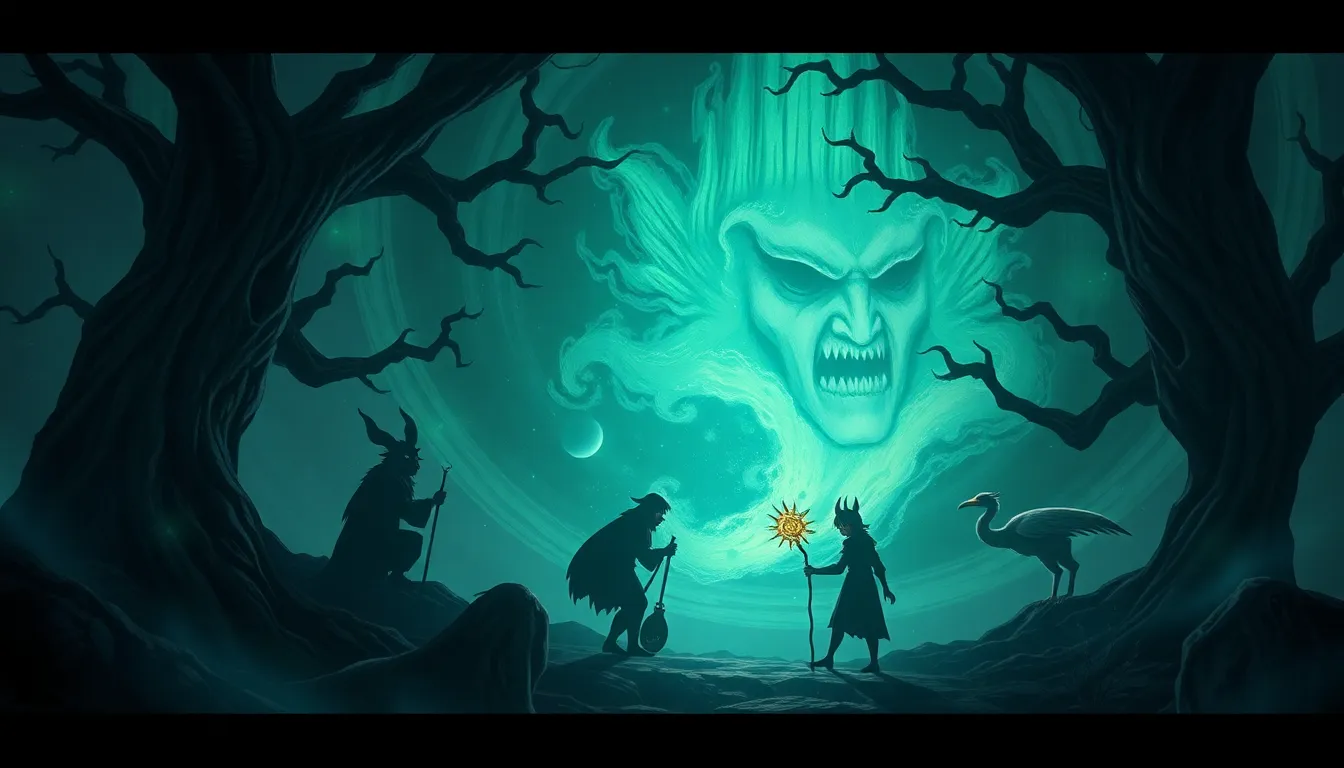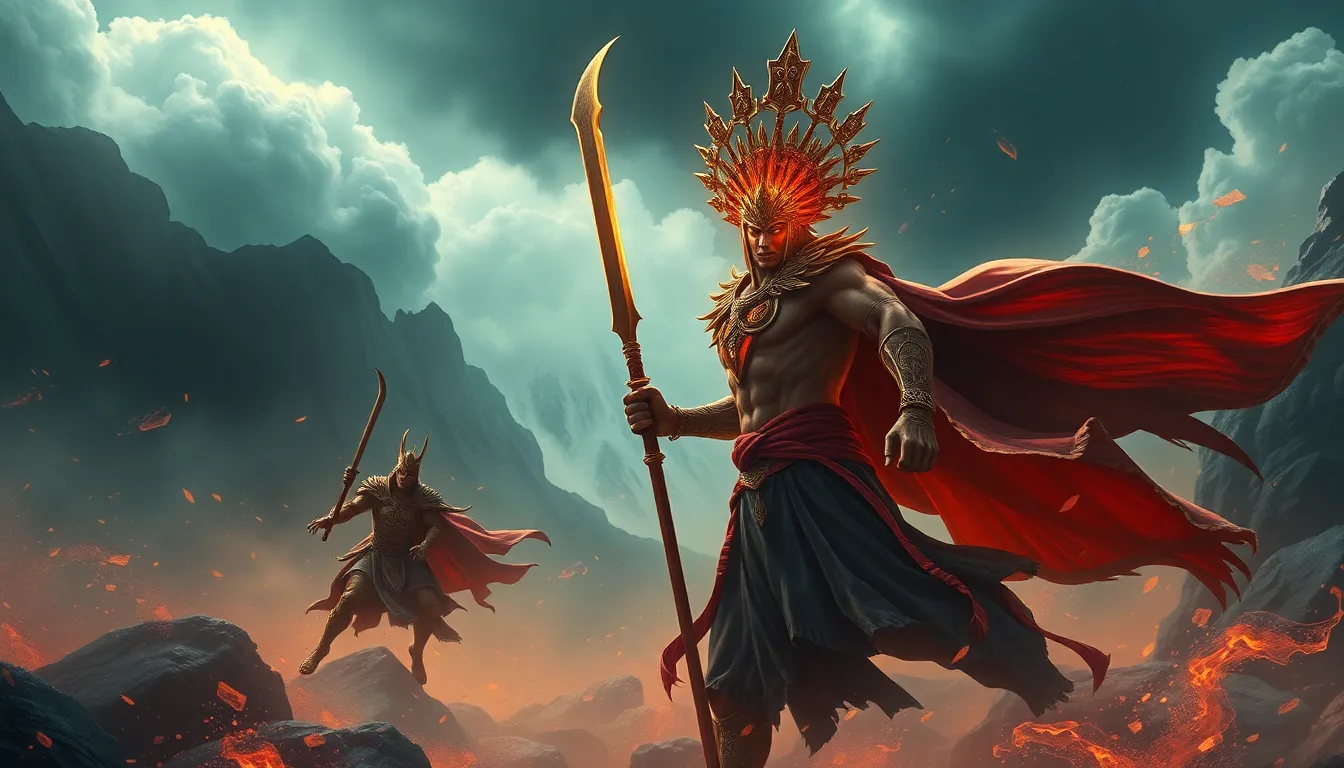1. Zurvanism: The Primordial Time God
In the ancient Persian religion of Zurvanism, time was not merely a measurement of linear progression but a deity in itself. Zurvan, the god of time, was believed to be the ultimate source of all creation, encompassing both good and evil, light and darkness. He was often depicted as an androgynous figure, representing the duality of time's nature.
Zurvanism's concept of time was cyclical, with periods of creation and destruction alternating. This cyclical nature mirrored the changing seasons and the perceived order of the universe. Zurvan's role was not merely to measure time but to oversee the unfolding of these cycles, ensuring the balance between opposing forces.
While Zurvanism eventually gave way to Zoroastrianism, its influence on the concept of time in Persian mythology remained significant. The idea of time as a powerful force, shaping and influencing all aspects of existence, permeated Zoroastrian beliefs and found expression in various myths and legends.
2. The Avesta and the Concept of Time
The Avesta, the sacred text of Zoroastrianism, contains numerous references to time and its importance. Time is personified as Zurvan, but also through other deities like Rashnu, the god of justice, and Mithra, the god of the covenant. These deities were associated with specific aspects of time, such as judgment and fidelity, highlighting the moral and ethical dimensions of timekeeping.
The Avesta emphasizes the linear nature of time, with a clear distinction between past, present, and future. This linear conception contrasts with the cyclical view of Zurvanism, but both perspectives acknowledge the significance of time as a framework for understanding human existence and the unfolding of events.
The Avesta's emphasis on time also reflects the Zoroastrian belief in free will and individual responsibility. By understanding the nature of time, humans could make conscious choices and strive towards a righteous path, ultimately influencing their own destiny and the fate of the world.
3. Time and Fate in Zoroastrianism
Zoroastrianism introduced the concept of fate, known as "Daena," intertwined with time. Daena was believed to be an individual's spiritual essence, shaped by their choices and actions throughout their life. This essence would determine their ultimate fate in the afterlife.
The connection between time and fate highlights the importance of making righteous choices in the present moment. Each decision, each action, contributes to the shaping of one's Daena, ultimately influencing their future destiny. This concept emphasizes the accountability of individuals and the enduring consequences of their choices across time.
The interplay between time and fate in Zoroastrianism adds a layer of complexity to the understanding of time. While time is seen as a linear progression, individual choices within that timeframe can influence the ultimate outcome, creating a dynamic interplay between free will and predetermined destiny.
4. The Cyclical Nature of Time in Persian Mythology
Despite the emphasis on linear time in the Avesta, the cyclical understanding of time remained prevalent in Persian mythology. This cyclical view is evident in myths about the creation and destruction of the world, the recurring battles between good and evil, and the eternal return of heroes and prophets.
The cyclical nature of time reflects the belief in the interconnectedness of all events, where past, present, and future are interwoven. This interconnectedness suggests that actions have consequences that ripple through time, influencing future generations and shaping the course of history.
The cyclical view of time also offers a sense of hope and renewal. Even in the face of destruction and darkness, the promise of a new beginning, a new cycle, provides comfort and inspires perseverance in the face of adversity.
5. The Day of Judgment and the End of Time
Zoroastrianism culminates in a Day of Judgment, marking the end of time as we know it. This day will see the ultimate triumph of good over evil, the resurrection of the dead, and the final judgment of all souls.
The Day of Judgment underscores the importance of time in Zoroastrianism. Time is not merely a measure of our earthly existence but a framework for understanding our ultimate purpose and destiny. By living righteously and making ethical choices, individuals can ensure a favorable outcome in the final judgment and contribute to the ultimate triumph of good.
The end of time, as envisioned in Zoroastrianism, is not an end in itself but a transition to a new era of existence, where evil is vanquished and righteousness prevails. This belief provides a sense of purpose and hope, encouraging individuals to strive for a better future and contribute to the ongoing struggle between good and evil.
6. Time and the Heroic Cycle
The concept of time plays a crucial role in the numerous heroic tales and epics that form a significant part of Persian mythology. These stories often depict heroes embarking on journeys that span vast stretches of time, encountering challenges and achieving victories that shape the course of history.
One notable example is the epic poem "Shahnameh" by Ferdowsi, which narrates the history of Persia from its mythical beginnings to the Islamic conquest. The poem interweaves time and heroism, showcasing how the actions of heroes influence the fate of nations and shape the destiny of generations to come.
The cyclical nature of time is also evident in heroic narratives, where heroes often face recurring challenges and confront similar adversaries across different eras. This cyclical pattern highlights the enduring struggle between good and evil and emphasizes the importance of upholding heroic values throughout time.
7. The Symbolism of Time in Persian Literature
Persian literature is replete with symbolism that reflects the multifaceted nature of time. Poets and writers employed various metaphors and imagery to convey the passage of time, emphasizing its relentless flow, its cyclical nature, and its impact on human experience.
One recurring symbol is the cycle of day and night, representing the constant alternation of light and darkness, good and evil, that characterizes human existence. The changing seasons, with their associated imagery of growth, decay, and renewal, also serve as potent metaphors for the passage of time.
Moreover, literary works often employ natural phenomena like rivers and wind to symbolize the continuous flow of time, reminding readers of its unstoppable progression and the ephemeral nature of life.
8. Time and the Journey of the Soul
In Persian mysticism and philosophy, time is often viewed as an integral part of the soul's journey towards enlightenment. The soul is believed to embark on a transformative journey through various stages of existence, progressing through time and gaining wisdom from its experiences.
This journey is often depicted as a cyclical process, with the soul reincarnating time and again until it reaches its ultimate goal of union with the divine. The concept of time, therefore, becomes intertwined with the soul's quest for self-realization and spiritual liberation.
9. The Impact of Persian Mythology on Contemporary Concepts of Time
The rich tapestry of time-related concepts in Persian mythology continues to influence contemporary understandings of time in various cultures. The cyclical view of time, the emphasis on moral accountability, and the symbolism associated with time's passage resonate with modern perspectives on the nature of time and its impact on human existence.
Furthermore, the heroic narratives and mystical insights found in Persian mythology inspire contemporary storytelling and philosophical discussions, contributing to a broader understanding of time's role in shaping individual lives and the collective human experience.
10. Conclusion: Examining Time Through the Lens of Persian Mythology
Exploring the concept of time through the lens of Persian mythology reveals a multifaceted understanding of time's nature, its impact on human experience, and its role in shaping the course of history. From the primordial god Zurvan to the cyclical patterns of heroic epics, from the symbolism in literature to the mystical journey of the soul, Persian mythology offers a profound and enduring perspective on time's significance in our lives and in the grand scheme of existence.
Whether viewed as a linear progression or a cyclical pattern, a measure of events or a framework for understanding fate, time remains a central thread that weaves through the rich tapestry of Persian mythology, offering insights into the human condition and the enduring quest for meaning and purpose.
Frequently Asked Questions (FAQs)
1. What is the significance of Zurvan in Persian mythology?
Zurvan, the primordial time god in Zurvanism, represents the ultimate source of creation and the embodiment of time's duality. He symbolizes the cyclical nature of time and the balance between opposing forces.
2. How does the Avesta portray the concept of time?
The Avesta emphasizes the linear nature of time and its connection to morality and individual responsibility. Time is personified through various deities associated with judgment and fidelity, highlighting the ethical dimensions of timekeeping.
3. How is fate intertwined with time in Zoroastrianism?
Zoroastrianism introduces the concept of Daena, an individual's spiritual essence shaped by their choices and actions, which determines their ultimate fate. The connection between time and fate emphasizes the importance of making righteous choices in the present to influence one's destiny.
4. How does Persian mythology depict the cyclical nature of time?
Persian mythology often features recurring themes of creation and destruction, battles between good and evil, and the return of heroes, reflecting the cyclical view of time and the interconnectedness of events across different eras.
5. How does the Day of Judgment in Zoroastrianism relate to time?
The Day of Judgment marks the culmination of time as we know it, signifying the triumph of good over evil and the ultimate judgment of all souls. It underscores the importance of time in understanding our purpose and destiny.



